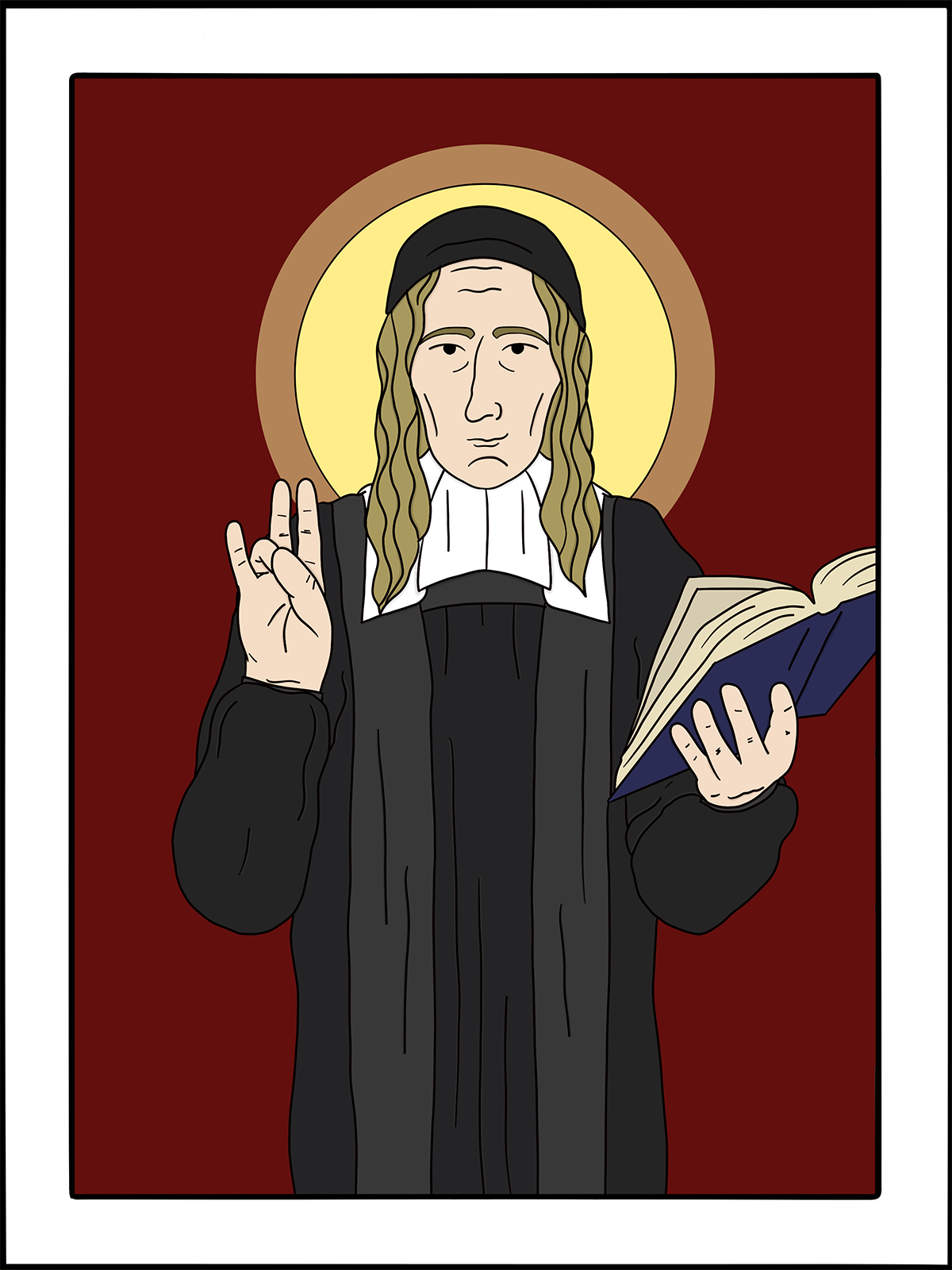
February 27
George Herbert
Priest and Poet, 1633
art by Rev. Kirsten Kohr of Uhrichsville, Ohio Almighty God, who called your servant George Herbert from the pursuit of worldly honors to be a poet and a pastor of souls: Give us grace, we pray, joyfully to dedicate all our powers to your service; through Jesus Christ our Lord, who lives and reigns with you and the Holy Spirit, one God, for ever and ever. Amen.
George Herbert is famous for his poems and for his prose work, A Priest to the Temple, or, The Country Parson. He described his poems as "a picture of the many spiritual conflicts that have passed betwixt God and my soul, before I could submit mine to the will of Jesus my Master; in whose service I have found perfect freedom.”
Herbert was born in Montgomery, Wales, on April 3, 1593, a cousin of the Earl of Pembroke. Through his official position as Public Orator of Cambridge, he was brought into contact with the Court of King James I and Prince (later King) Charles. Whatever hopes he may have had as a courtier were dimmed, however, because of his associations with persons who were out of favor with King Charles 1 - principally John Williams, Bishop of Lincoln. Herbert had begun studying divinity in his early twenties, and, in 1626, he was ordained as a priest. In 1630, King Charles provided him with a living as rector of the parishes of Fugglestone and Bemerton. His collection of poems, The Temple, was given to his friend Nicholas Ferrar and published posthumously. Two of his poems are well-known hymns: "Teach me, my God and King" (The Hymnal 1982, #592) and "Let all the world in every corner sing" (The Hymnal 1982, #402; #403). Their grace, strength, and metaphysical imagery influenced later poets, including Henry Vaughan and Samuel Taylor Coleridge.
Lines from his poem "Love 3" have moved many readers:
Love bade me welcome: yet my soul drew back,
Guilty of dust and sin.
But quick-eyed Love, observing me grow slack
From my first entrance In,
Drew nearer to me, sweetly questioning
If I lacked anything.
"A guest," I answered, "worthy to be here":
Love said, "You shall be he.”
"I, the unkind, ungrateful? Ah, my dear,
I cannot look on thee.”
Love took my hand, and smiling did reply,
"Who made the eyes but I?"
"Truth, Lord; but I have marred them; let my shame
Go where it doth deserve."
"And know you not," says Love, "who bore the blame?"
"My dear, then I will serve.”
"You must sit down." says Love, "and taste my meat.”
So did sit and eat.
Herbert was unselfish in his devotion and service to others. His words, “Nothing is little in God’s service,” have reminded Christians again and again that everything in daily life, small or great, may be a means of serving and worshiping God.
Excerpted directly from “Lesser Feasts and Fasts 2022,” p. 116-117.
Lessons and PsalmEcclesiastes 4:13-5:7
Psalm 23
Mark 9:2-8
Preface of a Saint (1)

